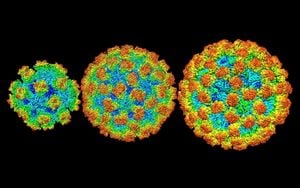The political climate in Delhi has taken another turn as the Supreme Court journeys through the murky waters of defamation law. On September 30, 2024, the apex court issued notice on Delhi Chief Minister Atishi and Aam Aadmi Party (AAP) leader Arvind Kejriwal's plea, seeking to challenge proceedings related to defamation claims against them. The case stems from accusations by BJP leader Rajiv Babbar, who alleges both Atishi and Kejriwal made defamatory remarks surrounding alleged voter list tampering during electoral processes.
A bench composed of Justices Hrishikesh Roy and SVN Bhatti has decided to pause the trial court proceedings, setting the stage for what promises to be a significant scrutiny of freedom of speech within political discourse. The Supreme Court's notice explicitly references the need for higher standards when it involves political individuals and parties, emphasizing the constitutional protection of free speech under Article 19(1)(a).
Representing Atishi and Kejriwal, senior advocate Abhishek Singhvi put forth the argument questioning Babbar's legitimacy as the complainant. He contended, "BJP, neither central nor Delhi, has not filed any complaint. Babbar is not the person I have allegedly defamed." Singhvi’s assertion reflects broader themes within the case: the interplay of political rivalry, the limits of free expression, and the rigorous scrutiny defamation suits face when deemed to infringe on political speech.
Yet, Babbar's counsel, senior advocate Sonia Mathur, stood firm on the matter, asserting the lawsuit was filed legitimately on behalf of the BJP. Mathur stated, "This case is about protecting the party's reputation against allegations linking us to voter deletions." The contrasting narratives laid out during the hearing suggest not only the personal stakes of the politicians involved but also the wider ramifications these proceedings could have on electoral integrity.
The origins of this clash can be traced back to remarks made by Atishi and Kejriwal about the BJP allegedly being involved in the deletion of names from electoral rolls—a claim they argue was rooted firmly in concerns about electoral fairness. According to Atishi, the government's integrity is called to question when such grave accusations arise, asserting, "We must hold those responsible for manipulating voter lists accountable. Every citizen deserves their voice heard during elections." This sentiment resonates among their supporters who claim the optics of the lawsuit symbolize broader issues within the electoral framework.
On September 2, the Delhi High Court had ruled against Atishi and Kejriwal, rejecting their plea to quash the defamation proceedings. It deemed the statements made by the AAP leaders as potentially damaging to the BJP's reputation and categorized them as prima facie defamatory. This ruling set the tone for the latest Supreme Court hearing, setting up questions about the legitimacy of perceived political defamation.
This case doesn't just involve two individuals at odds; it is emblematic of the charged environment politicians find themselves operating within. The often blurred lines between accountability, criticism, and defamation can have lasting repercussions on public discourse. Political leaders have historically maneuvered through allegations against rivals, but when does critique transform from healthy political disagreement to defamation? This is the inquiry the Supreme Court may soon shed light on.
Supporters of Atishi and Kejriwal view the lawsuit as politically motivated—an apparent attempt to stifle dissent as they charge through political terrain. Conversely, BJP supporters frame the criticisms as reckless assertions made without accountability, often stating, "if they have proof of wrongdoing, they should provide it, rather than hiding behind free speech."
The upcoming Supreme Court ruling carries considerable weight, not just for the individuals directly involved but for all who engage within the political arena. The ramifications of this decision may help define the contours of political speech for years to come. Amid all the legal jargon and courtroom drama, the fundamental question remains—how should society navigate truth and defamation within the political sphere?
The defendants await their day at court, with their reputations and freedom of expression hanging delicately in the balance, highlighting how fraught political communication can be, especially leading up to elections. Advocates on both sides prepare for the lengthy legal battle, emphasizing the importance of their respective arguments and the far-reaching impact this case may hold for similar future disputes across the country.



